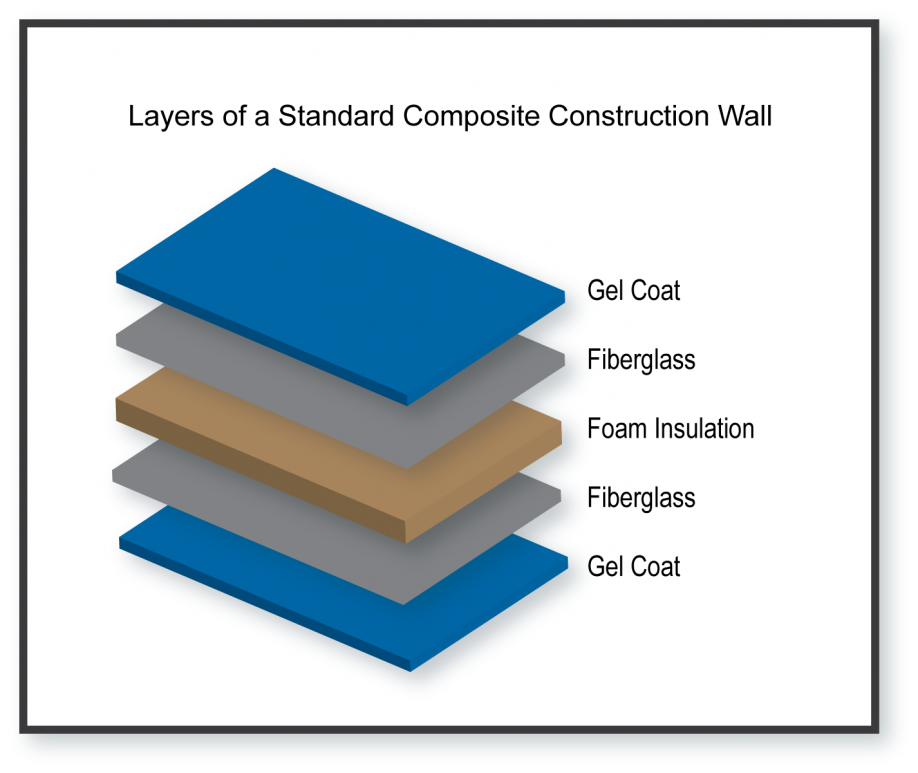The Role of Recycled Compounds: Enhancing Performance and Sustainability Initiatives
In today's ever-evolving landscape of materials engineering and sustainability initiatives, the application of recycled compounds has arised as an engaging area of interest. These cutting-edge products provide an unique mix of enhanced efficiency capabilities and ecological advantages that hold significant guarantee for a vast array of industries. By utilizing the power of recycled composites, organizations can not just elevate their operational effectiveness and item quality however additionally add to a much more lasting future. The intricate interplay in between these composites, performance metrics, and sustainability goals paints a fascinating image of possible advancements yet to be totally checked out.
Advantages of Recycled Composites
Recycled composites supply a sustainable service that not just boosts performance but likewise reduces environmental effect in different industries. One of the crucial advantages of using recycled composites is their ability to draw away waste from land fills. By including products such as recycled plastics or carbon fiber right into making procedures, business can decrease the amount of waste generated and advertise a round economic situation.
Moreover, recycled compounds often exhibit equivalent or also remarkable mechanical residential or commercial properties to virgin materials. This suggests that items made from recycled composites can maintain high efficiency requirements while being much more ecologically friendly. In addition, utilizing recycled composites can help companies fulfill their sustainability goals and reduce their carbon impact.

Performance Benefits of Recycled Composites
Enhancing architectural integrity and durability, recycled compounds offer remarkable performance benefits in different commercial applications. One considerable benefit is the enhanced strength-to-weight proportion that recycled compounds provide. This building is particularly essential in sectors such as aerospace, auto, and building, where lightweight products that maintain high stamina are highly demanded.

In addition, recycled compounds supply remarkable exhaustion resistance contrasted to lots of standard products - composites. This characteristic is crucial in sectors based on cyclic loading or vibrant anxieties, as it assists avoid premature failing and ensures long-term reliability
Additionally, recycled compounds can be customized to fulfill specific performance demands by adjusting the type and proportion of recycled materials utilized in their manufacturing process. This personalization ability enables the advancement of high-performance composites that deal with the special requirements of different sectors, even more highlighting the performance benefits of recycled composites.
Ecological Influence of Recycled Composites
The adoption of recycled composites in various markets has prompted a better assessment of their ecological effect. When assessing the environmental ramifications of recycled composites, it is crucial to take into consideration both their production procedure and end-of-life disposal. In comparison to traditional compounds, recycled composites provide the advantage of drawing away waste from landfills and minimizing the need for basic materials extraction (composites). This element contributes to decrease energy usage and greenhouse gas emissions throughout the production phase, straightening with sustainability goals.
In addition, using recycled composites can lead to a reduction in total carbon footprint and environmental contamination. By including recycled products into new composite items, firms can add to resource conservation and waste decrease web link initiatives. Furthermore, the resilience and durability of recycled composites can expand item life expectancy, additional minimizing ecological impact. In spite of these advantages, obstacles such as keeping material high quality and ensuring appropriate reusing framework exist. Proceeded study and development in this field are necessary to optimize the environmental performance of recycled composites and advancement sustainable methods across markets.
Applications of Recycled Composites
Various industries have embraced the usage of recycled composites as a result of their flexibility and performance-enhancing properties. Among the crucial applications of recycled composites is in the automobile industry, where they are made use of to make light-weight components such as bumpers, indoor panels, and under-the-hood parts. These composites help in reducing the total weight of automobiles, enhancing fuel performance and lowering carbon exhausts.
In the building field, recycled composites are significantly being utilized to create resilient and weather-resistant structure materials. These materials offer high strength-to-weight ratios, making them ideal for applications such as roof covering, cladding, and decking. Furthermore, the use of recycled composites in framework projects, such as tunnels and bridges, has actually obtained traction because of their long life and resistance to rust.
In addition, the aerospace find out here industry depends on recycled composites to create airplane components that need high toughness and stiffness. These compounds play an essential duty in enhancing the efficiency and gas efficiency of airplane while lowering maintenance expenses. On the whole, the varied applications of recycled compounds across markets highlight their substantial contribution to improving sustainability initiatives and boosting performance criteria.
Future Expectation for Recycled Composites
With a raising emphasis on sustainability and innovation, the future expectation for recycled compounds in various sectors appears appealing. As firms make every effort to meet environmental goals and minimize their carbon footprint, the demand for sustainable materials like recycled composites is anticipated to climb considerably. Industries such as auto, building, consumer, and aerospace goods are progressively turning to recycled composites as a result of their light-weight, resilient, and environmentally friendly residential or commercial properties.
In the vehicle sector, making use of recycled compounds over here in vehicle manufacturing is predicted to increase as automakers look for to generate lighter and more fuel-efficient automobiles. In a similar way, in the building market, there is an expanding interest in operation recycled compounds for framework projects to decrease waste and improve sustainability. The aerospace market is likewise discovering the potential of recycled compounds for airplane components to boost fuel performance and decrease discharges.
Verdict
The applications of recycled composites are vast, ranging from construction to automotive sectors. Relocating onward, the usage of recycled composites is expected to continue to grow as business and industries focus on sustainability initiatives in their procedures.
In today's ever-evolving landscape of materials design and sustainability efforts, the usage of recycled compounds has actually arised as a compelling area of passion. In contrast to conventional compounds, recycled composites use the benefit of diverting waste from landfills and lowering the requirement for raw materials removal. By integrating recycled products into brand-new composite products, firms can add to resource preservation and waste reduction initiatives.In the building sector, recycled compounds are increasingly being made use of to create weather-resistant and resilient structure materials. As firms strive to satisfy ecological objectives and reduce their carbon footprint, the need for sustainable products like recycled composites is expected to climb dramatically.
Comments on “Composites: Strong and Resilient Construction Products”